Monday, 29 November 2021
13:30-15:00 (Session 1)
Panel 7: Achieving Spectrum Superiority Through Collaboration Between Department of Defense and the National Spectrum Consortium
Panel 8: Heterogeneous Processing for Software Defined Radios
15:30 - 18:15 (Session 2)
Panel 12: 5G and Further xG Changes Needed to Maximise Use of Mixed Reality in Tactical Military Scenarios - (Sponsored By Intel)
Tuesday, 30 November 2021
10:20-12:00 (Session 3)
Panel 1: Federated Learning in Coalition and Multi-domain Operations
Panel 11: Accelerating 5G/NextG Innovation and DoD Acquisition Options by Advancing Open Architecture and Standardization
13:30-15:00 (Session 4)
Panel 2: Future of Cyberspace Technologies and Cyber Battleground
Panel 3: Use of Commercial-off-the-Shelf (COTS) Software-Defined Radio (SDR) Platforms for Prototyping and Test
15:30-17:00 or longer (Session 5)
Panel 5: Emerging 5G NTN Capabilities and Standards
Wednesday, 1 December 2021
10:20-12:00 (Session 6)
Panel 4: The Internet of Battlefield Things: From Research Priorities to Decision Overmatch
Panel 9: Zero Trust Architecture: How We Got to Where We Are?
13:30-15:00 (Session 7)
Panel 10: Towards Resilient Cyber-Physical Systems: State of the Art and Future Challenges
Panel 1: Federated Learning in Coalition and Multi-domain Operations
Date: Tuesday, 30 November 2021
Time: 10:20-12:00 (Session 3)
Room: Pacific 18, First Floor (Ground Level)
Organizer:
Dr. Shiqiang Wang, IBM Research
Shiqiang Wang is a Research Staff Member at IBM T. J. Watson Research Center, NY, USA. His current research focuses on the intersection of distributed computing, machine learning, networking, and optimization. He has made foundational contributions to edge computing and federated learning that generated both academic and industrial impact. Dr. Wang received the IEEE Communications Society Leonard G. Abraham Prize in 2021, IBM Outstanding Technical Achievement Award (OTAA) in 2019 and 2021, multiple Invention Achievement Awards from IBM since 2016, Best Paper Finalist of the IEEE International Conference on Image Processing (ICIP) 2019, and Best Student Paper Award of the Network and Information Sciences International Technology Alliance (NIS-ITA) in 2015.
Moderator:
Dr. Kevin Chan, Army Research Laboratory
Kevin S. Chan is currently an Electronics Engineer with the Computational and Information Sciences Directorate, U.S. Army Combat Capabilities Development Command, Army Research Laboratory, Adelphi, MD, USA. He is actively involved in research on network science, distributed analytics, and cybersecurity. He has received multiple best paper awards and the NATO Scientific Achievement Award. He is a Co-Editor of the IEEE Communications Magazine—Military Communications and Networks Series.
Panelists:
Dr. Ananthram Swami, Army Research Laboratory {Confirmed}
Ananthram Swami (Life Fellow, IEEE) is with the U.S. Army Research Laboratory (ARL), Adelphi, MD, USA, and is the Army's Senior Research Scientist (ST) for Network Science. Prior to joining ARL, he held positions with Unocal Corporation, USC, and CS-3. He has held visiting faculty positions with INP, Toulouse, France, and with Imperial College, London, U.K. Dr. Swami is a recipient of the 2018 IEEE ComSoc MILCOM Technical Achievement Award and the 2017 Presidential Rank Award (Meritorious). He is an ARL Fellow.
Prof. Kin Leung, Imperial College London {Confirmed}
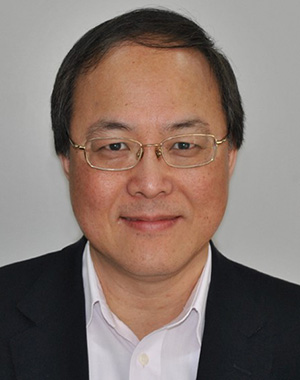 Kin K. Leung (Fellow, IEEE) is the Tanaka Chair Professor with the Electrical and Electronic Engineering (EEE), and Computing Departments, Imperial College, London, U.K., where he is the Head of Communications and Signal Processing Group with the EEE Department. He received the Distinguished Member of Technical Staff Award from AT&T Bell Labs in 1994 and was a co-recipient of the Lanchester Prize Honorable Mention Award in 1997. He also received the Royal Society Wolfson Research Merits Award (2004–2009) and became a member of Academia Europaea in 2012.
Kin K. Leung (Fellow, IEEE) is the Tanaka Chair Professor with the Electrical and Electronic Engineering (EEE), and Computing Departments, Imperial College, London, U.K., where he is the Head of Communications and Signal Processing Group with the EEE Department. He received the Distinguished Member of Technical Staff Award from AT&T Bell Labs in 1994 and was a co-recipient of the Lanchester Prize Honorable Mention Award in 1997. He also received the Royal Society Wolfson Research Merits Award (2004–2009) and became a member of Academia Europaea in 2012.
Prof. Leandros Tassiulas, Yale University {Confirmed}
Leandros Tassiulas (Fellow, IEEE) is currently the John C. Malone Professor of Electrical Engineering at Yale University. His research has been recognized by several awards, including the IEEE Koji Kobayashi Computer and Communications Award, the inaugural INFOCOM 2007 Achievement Award for fundamental contributions to resource allocation in communication networks, the INFOCOM 1994 and 2017 Best Paper Awards, a National Science Foundation (NSF) Research Initiation Award (1992), an NSF CAREER Award (1995), an Office of Naval Research Young Investigator Award (1997), and a Bodossaki Foundation Award (1999).
Dr. Dinesh Verma, IBM Research {Confirmed}
Dinesh Verma is an IBM Fellow leading the team working in the area of Distributed AI, which performs research in technology areas at the intersection of Internet of Things, Artificial Intelligence and Distributed Systems & Networks. He is also Research CTO for Edge Computing and serves as the strategist for 6G research in Future of Computing initiative and Telecom Industry. He is an IEEE Fellow, and a Fellow of the Royal Academy of Engineering, UK.
Description: In coalition and multi-domain operations, participants may generate data that are private and cannot be shared with others. However, in many situations, such data can be very useful for creating analytics services that provide situational awareness (e.g., detecting objects of interest from camera feeds) in highly dynamic environments. Federated learning (FL) is a technique for model training from decentralized data, which preserves the privacy by keeping the raw data at local devices and applying additional mechanisms such as secure aggregation. As a result, FL is a promising approach for supporting analytics in data-scarce operational networks. To apply FL in military systems, several challenges exist, including the limited communication bandwidth and computation power of devices. The focus of this panel is to identify unique challenges of FL in military applications and discuss how these challenges may be addressed. We will have panelists from military research lab, academia, and industrial research lab to provide a diverse set of expertise on this topic.
Panel 2: Future of Cyberspace Technologies and Cyber Battleground
Date: Tuesday, 30 November 2021
Time: 13:30-15:00 (Session 4)
Room: Pacific 18, First Floor (Ground Level)
Organizer & Moderator:
Bharat Doshi, ONR
Currently working as a contractor to the Office of Naval Research, providing technical support for the DoD Cyber CoI. Over 40 years of professional experience in academia, industrial research laboratories, and Government laboratories. The areas of personal research contributions include cyber challenges, wireless as well as wireline networking and communication, sensors and sensor networks, and manufacturing efficiency. Have managed research organizations of up to 200 people with advanced graduate degrees in computer science, electrical engineering, biology, psychology, material science, and mathematics. Have published over 145 papers and have been granted 46 US patents. Bell Labs Fellow and IEEE Fellow.
Panelists:
Robert Kimball, US Army, DevCom C5ISR Center {Confirmed}
Mr. Kimball is Army’s Senior Research Scientist for Cyber, within DEVCOM C5ISR Center. In this role, he investigates innovative capabilities to improve the cyber posture of the Army’s tactical communications networks. Earlier, he worked as a senior advisor to DISA, where he led the cybersecurity orchestration and automated response systems. He worked on end-point protection strategies, cyber automation, artificial intelligence/ machine learning systems, and zero trust. He worked at AT&T and MITRE in the area of high-speed optical networks. He has several patents and published numerous papers.
Dr. Daniel Clouse, Laboratory for Advanced Cybersecurity Research (DoD Research) {Confirmed}
Dr. Daniel Clouse is a senior researcher in DoD’s Laboratory for Advanced Cybersecurity Research (LACR) where he leads their Trustworthy Artificial Intelligence (AI) Efforts. He received his PhD in 2002 from Binghamton University where he studied Universal Algebra. His career as a research mathematician at the DoD has spanned 19 years, starting out in the Cryptologic Mathematician Program from 2002-2005. In 2004 he first investigated Machine Learning (ML) in the Research Directorate (RES) and has been active in the field ever since. He has successfully deployed numerous ML applications for mission, including with the Customer Gateway, National Security Operations Center, and Office of the Director of Compliance which led him to serving as RES’s Technical Director for Compliance from 2014-2016. Upon moving to LACR in 2017 he began investigating ML Assurance resulting in a partnership with OUSD(R&E) Cyber and technology transition with the Army’s Combat Capabilities Center. He has since started a new project blending generative ML and formal verification methods and he hopes to continue successful technology transitions in the years to come
Dr. Alexander Kott, DEVCOM Army Research Laboratory {Confirmed}
Alexander Kott is the Chief Scientist of the US Combat Capabilities Development Command Army Research Laboratory. He is also the Army Senior Research Scientist (ST) for Cyber Resilience, focusing on future technologies critical to the Army. Prior to becoming the Chief Scientist of ARL, he held positions of the Chief of the Network Science Division at ARL, and a program manager at Defense Advanced Research Projects Agency (DARPA). He earned his PhD from the University of Pittsburgh, US. He has published more than 100 technical papers and has been the coauthor and editor of 12 books.
Joseph Mathews, US Naval Research Laboratory (NRL) {Confirmed}
Mr. Mathews commenced his career as a Computer Engineer with the U.S. Naval Research Laboratory in 2003. He currently serves as Acting Director for the NRL Center for High Assurance Computer Systems and leads a multidisciplinary team of scientists and engineers developing high assurance technology for military applications. Mr. Mathews is a recipient of the DONCIO Information Management/Information Technology Excellence Award and NRL Technology Transfer Award for contributions to Navy cyber defense operations. He is an alumnus of the George Washington University and the National Security Agency Information Assurance Scholarship Program.
Marc Lovend, DoD Research {Confirmed}
Marc Lovend is a senior researcher for the DoD’s Laboratory for Telecommunication Sciences (LTS) research and engineering laboratory. Marc has a Master’s Degree in Electrical Engineering and Communication Theory from the George Washington University and a Bachelor’s Degree in Electrical Engineering from the University of Detroit. He has over 35 years of professional experience covering a broad spectrum of fundamental and applied research in communications applications, electronic design, signal integrity, manufacturing, and Field programmable Gate Arrays (FPGAs). Mr. Lovend represented the LTS as a technical expert on DoD Advisory Groups on Electron Devices, as well as on DoD Special Area Technology Reviews for FPGA technology and Low Volume High Performance IC Production/Trusted Foundries. Most recently was granted a US patent for the development of new methods for Radio Frequency Identification technology.
Dr. Ryan Craven, Office of Naval Research {Confirmed}
Dr. Ryan Craven is a Program Officer in the Mathematics and Information Sciences Division of the Office of Naval Research. He is also the Working Group Lead of the DoD Cyber Community of Interest. As a PO in ONR, he has conceived and managed important and consequential programs like Resilient Hull, Mechanical, and Electrical Security (RHIMES) and Total Platform Cyber Protection (TPCP). He has also sponsored several influential workshops. He has a strong record of transitioning the research results. Dr. Craven got his Ph.D. From Naval Postgraduate School
Description: Cyberspace technologies and their applications increasingly permeate our lives, leading to unprecedented situation awareness, productivity, and speed of actions. However, they have been vulnerable to malicious cyber-attacks with increasingly serious consequences, creating a new battleground and an S&T discipline. Changes in cyberspace technologies and applications create new exploitable cyber vulnerabilities and alter the cyber battleground. It is therefore important for the cyber warrior community to understand the trends in cyberspace technologies and their applications even though these trends are not under their control. Mapping these trends to likely changes in the cyber battleground will enable proactive Cyber S&T planning. A recent study conducted by the DoD Cyber CoI was designed for this purpose and generated valuable insight. Extensive input was collected from groups and individuals in industry, academia, Government laboratories, FFRDCs, and UARCs. Their inputs, coupled with technical papers, strategy documents, and Roadmaps for relevant technologies enabled the team to obtain a comprehensive picture. The proposed panel will discuss key findings, including major technology trends and potential impact on the cyber battleground. Multiple views will be reflected in the presentations as well as dialogue with the audience. About half of the panel time will be devoted to the latter.
Dr. Doshi will provide the study background and broadly discuss key trends and impacts on cyber battleground.
Dr. Craven will discuss broad trends in the ecosystem of cyberspace technologies and challenges and opportunities for cyber S&T. The trends will include increasing complexity, programmability, and dynamics in supply chain.
Mr. Lovend will discuss trends in microelectronics technologies, increasing roles of software, and resulting cyber challenges.
Mr. Kimball will discuss trends in networking and communications, including Software Defined Networks (SDN), Network Function Virtualization (NFV), and resulting programmability.
Dr. Clouse will discuss multi-faceted relationships between AI/ML and cyber, major trends and their likely influences, AML, and the need for Trustworthy AI/ML.
Dr. Kott will discuss the need for increasing autonomy and speed in cyber battleground. He will focus on cyber resilience and autonomous software agents.
Mr. Mathews will discuss the impacts of the trends in cyberspace technologies on the challenges and opportunities for cyber situation awareness, command, and controls.
Panel 3: Use of Commercial-off-the-Shelf (COTS) Software-Defined Radio (SDR) Platforms for Prototyping and Test
Date: Tuesday, 30 November 2021
Time: 13:30-15:00 (Session 4)
Room: Pacific 19, First Floor (Ground Level)
Organizer & Moderator:
Idin Motedayen-Aval, Mathworks
Idin Motedayen-Aval is an Applications Engineering Manager at MathWorks and manages a team of engineers focused on products and workflows for wireless communications (5G, LTE, WLAN, SatCom), RF, antenna, and mixed-signal applications. He has been with MathWorks since 2004 and has worked with Tier 1 Communications, Electronics, Semiconductor, and Aerospace customers and helped them streamline their workflows for wireless and RF/AMS application development. Idin also channels the customer feedback and experiences as a lead voice of the customer to help shape MathWorks product strategy and priorities. Idin has a Master's degree in Electrical Engineering from University of Michigan, and a Bachelor's degree in Electrical and Computer Engineering from University of Massachusetts Amherst.
Panelists:
Mike McLernon, Mathworks {Confirmed}
Mike McLernon is an advocate for communications and software-defined radio products at MathWorks. Since joining MathWorks in 2001, he has overseen the development of PHY layer modeling and SDR connectivity capabilities in Communications Toolbox. He has worked in the communications field for over 30 years in both the satellite and wireless industries. Mike received his BSEE from the University of Virginia and his MEEE from Rensselaer Polytechnic Institute.
Phillip Henson, National Instruments {Confirmed}
Phillip Henson has spent the majority of his career in and around Military Communications and RADAR systems. He is current a Senior Offering manager at NI responsible for product, service, and system offerings to support Communications, RADAR, and EW customers within the Aerospace, Defense and Government Business unit. He has over a decade of experience in Aerospace and Defense across various engineering and product management roles at the Missile Defense Agency, Dynetics, and Abaco Systems. He a master’s degree in electrical engineering from Auburn University and an MBA from Vanderbilt University.
fred harris, UCSD {Confirmed}
Professor harris is at the University of California San Diego where he teaches and conducts research on Digital Signal Processing and Communication Systems. He holds 40 patents on digital receiver and DSP technology and lectures throughout the world on DSP applications. He consults for organizations requiring high performance, cost effective DSP solutions.
He has written some 280 journal and conference papers, the most well-known being his 1978 paper “On the use of Windows for Harmonic Analysis with the Discrete Fourier Transform” (9000 citations). He is the author of the book Multirate Signal Processing for Communication Systems, is co-author with Bernard Sklar of 3rd edition Digital Communications, and has contributed to several other DSP books. His special areas include Polyphase Filter Banks, Physical Layer Modem design, Synchronizing Digital Modems and Spectral Estimation
He was the Technical and General Chair respectively of the 1990 and 1991 Asilomar Conference on Signals, Systems, and Computers, was Technical Chair of the 2003 Software Defined Radio Conference, of the 2006 Wireless Personal Multimedia Conference, of the DSP-2009, DSP-2013 Conferences and of the SDR-WinnComm 2015 Conference. He was Editor in Chief of Elsevier’s DSP Journal. Became a Fellow of the IEEE in 2003, cited for contributions of DSP to communications systems. In 2006 he received the Software Defined Radio Forum’s “Industry Achievement Award” and received the DSP-2018 conference’s commemorative plaque with the citation: We wish to recognize and pay tribute to fred harris for his pioneering contributions to digital signal processing algorithmic design and implementation, and his visionary and distinguished service to the Signal Processing Community.
The spelling of his name with all lower case letters is a source of distress for typists and spell checkers. A child at heart, he collects toy trains, gyroscopes, and old slide-rules.
Michael Anderson, NIWC-Pacific {Confirmed}
Dr. Michael Anderson is the head of the Joint Tactical Communications & Software Defined Radio branch at the Naval Information Warfare Center Pacific. He has an extensive background in the design of wireless communication systems and the use and deployment of military technologies. Dr. Anderson holds a BS and MS in Electrical Engineering from the University of Michigan, and a PhD in Information Sciences from the Naval Postgraduate School.
Travis Collins, Analog Devices {Confirmed}
Travis F. Collins holds Ph.D. and M.S. degrees in electrical and computer engineering from WPI. His research focused on small cell interference modeling, phased array direction finding, and high performance computation for software-defined radio. Dr. Collins is currently a Senior Algorithms Engineer at Analog Devices, working across applications in signal classification, communications, and radar. He has been involved in software-defined radio education, software tools, and hardware for over a decade.
Description: Commercial-off-the-shelf (COTS) radio platforms such as USRP have come a long way in the past decade with a wide range of radios now available at various price points (from a few hundred dollars to $10k or more). As the capabilities of these devices have grown, they are finding much wider application in wireless labs, especially in the AeroDefense industry. It is almost certain that these radios will play a significant role in designing and testing the next generation of military radios. In this session we have invited experts from hardware makers (NI, ADI), software vendors (MathWorks, NI), and end user community (Navy) to discuss both the hardware and software aspects of using these devices. We will discuss the applicability of these radios to prototyping & testing workflows today as well as what the future holds for these platforms and the software that connects to them.
Panel 4: The Internet of Battlefield Things: From Research Priorities to Decision Overmatch
Date: Wednesday, 1 December 2021
Time: 10:20-12:00 (Session 6)
Room: Pacific 19, First Floor (Ground Level)
Organizer:
Maggie Wigness, DEVCOM ARL
Dr. Wigness received her Ph.D. in Computer Science from Colorado State University in 2015. She is currently a Computer Scientist at the US Army Research Laboratory and the Deputy Collaborative Alliance Manager of the Internet of Battlefield Things Collaborative Research Alliance, a $25M Army Research Labs investment into advancing the technical foundations of future tactical IoTs. Her research interests lie in Computer Vision, Machine Learning, and Robotics. Her work strives to advance the foundation for learning-capable agents to provide Soldiers with autonomous robot teammates that reduce the risks that come with exploration and data collection.
Moderator:
Tarek Abdelzaher, University of Illinois at Urbana Champaign
Abdelzaher received his Ph.D. from U. Michigan in 1999. He is a Sohaib and Sara Abbasi Professor and Willett Faculty Scholar in Dept. Computer Science, University of Illinois. He has 300+ refereed publications in real-time computing, distributed systems, sensor networks, and control. He served as Editor-in-Chief of the journal or Real-Time Systems, and as Associate Editor and/or Conference Chair for many key venues in his field. He received the IEEE Outstanding Technical Achievement and Leadership Award in Real-time Systems (2012), the Xerox Award for Faculty Research (2011), and several best paper awards. He is a fellow of IEEE and ACM.
Panelists:
Erik Blasch, US Air Force Research Lab {Confirmed}
Dr. Blasch received his B.S. in Mechanical Engineering from MIT and PhD in Electrical Eng. from Wright State University in addition to numerous Master’s Degrees in Mech. Eng., Ind. Eng., Elect. Eng., Medicine, Military Studies, Economics, Psychology, and Business. Additionally, his assignments include: Adjunct associate professor, President of professional societies, and Colonel (ret) in the USAF reserves. His areas of research include information-fusion, image fusion, avionics, and human-machine integration; compiling over 30+ engineering challenge awards, 18 medals, 900 papers, 32 patents, and 7 books. He is an Associate Fellow of AIAA, Fellow of SPIE, and Fellow of IEEE.
Susmit Jha, SRI International {Confirmed}
Dr. Jha received his Ph.D. from the University of California at Berkeley (2011). He is currently a Principal Scientist at SRI International, leading the research thrust on trust, resilience, and interpretability of AI. His work focuses on combining formal methods and machine learning to build trusted artificial intelligence and correct-by-construction autonomous systems. He received many honors including the Leon Chua Award (UC Berkeley, 2011), a Research Award for Low Energy Platforms (Intel, 2014), and a 10-year most influential paper award for work on Oracle-guided Program Synthesis (ICSE, 2010). He has several projects with DARPA, ARL, IARPA, and NSF.
Prof. Donald Townsley, University of Massachusetts, Amherst {Confirmed}
Prof. Towsley holds a Ph.D. in Computer Science (1975) from University of Texas. He is currently a Distinguished Professor of Computer Science at the University of Massachusetts. He pioneered the area of network tomography and the theoretical study of covert communications, and is one of the leading researchers in quantum networking. He received multiple Best Paper awards and four Test of Time Awards for his work. Towsley is the recipient of IEEE's most prestigious Koji Kobayashi Award, and has also received Achievement Awards from ACM SIGCOMM and ACM SIGMETRICS. He is a Fellow of the IEEE and of the ACM.
Maggie Wigness, DEVCOM ARL {Confirmed}
Dr. Wigness received her Ph.D. in Computer Science from Colorado State University in 2015. She is currently a Computer Scientist at the US Army Research Laboratory and the Deputy Collaborative Alliance Manager of the Internet of Battlefield Things Collaborative Research Alliance, a $25M Army Research Labs investment into advancing the technical foundations of future tactical IoTs. Her research interests lie in Computer Vision, Machine Learning, and Robotics. Her work strives to advance the foundation for learning-capable agents to provide Soldiers with autonomous robot teammates that reduce the risks that come with exploration and data collection.
Description: A doctrine of convergence of military capabilities from multiple domains to enhance efficacy heralds a new age in defense, marked by the ability to withstand a higher operation scale and tempo, enabled by increased levels of automation and coordination in the battlefield. The increased automation and coordination of defense capabilities call for a smarter battlefield “operating system” – one that manages complex automated tasks at time scales that preclude human engagement, while empowering the warfighters with adequate control. We call this operating system, the Internet of Battlefield Things (IoBT). The IoBT is a fighting network; all functions must withstand an active, determined and technologically sophisticated adversary. Time in IoBT operation is a weapon; winners are those who minimize the latency between their sensors and effects. A new breed of AI solutions must be supported within the IoBT framework that can be projected rapidly to the point of need, where they can survive the austere environment of field operations. What research priorities must be put in place to solve the above challenges? What technical innovations and methods can be brought to bear? The panel will explore advances in Internet of Battlefield Things vision, topics, and artifacts that accelerate the path to decision overmatch.
Panel 5: Emerging 5G NTN Capabilities and Standards
Date: Tuesday, 30 November 2021
Time: 15:30-17:00 or longer (Session 5)
Room: Pacific Ballroom 18, First Floor (Ground Level)
Organizer:
Lizy Paul, National Spectrum Consortium (NSC), Lockheed Martin
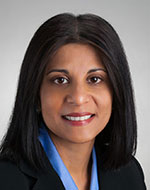 Lizy Paul is the Elected Chair of the National Spectrum Consortium. Lizy is currently the Director of 5G.MIL™ Programs for Lockheed Martin Corporation. In this role, Lizy helps lead the strategy, planning, and execution of the enterprise 5G.MIL™ IR&D portfolio; organize and facilitate external advisory group reviews and standards body engagements; and support technology transition to business areas for programs and new business capture. Prior to her current position with Lockheed Martin, she was the Director of Technical Strategy for the Defense Communications, Datalinks and Networking Solutions capabilities and products at Collins Aerospace, a Raytheon Company. Paul has a Master of Science degree in Electrical Engineering from Johns Hopkins University, Maryland, United States and an Executive MBA from University of Iowa, United States. She holds 16 patents in the area of RF Communications and Networking technologies
Lizy Paul is the Elected Chair of the National Spectrum Consortium. Lizy is currently the Director of 5G.MIL™ Programs for Lockheed Martin Corporation. In this role, Lizy helps lead the strategy, planning, and execution of the enterprise 5G.MIL™ IR&D portfolio; organize and facilitate external advisory group reviews and standards body engagements; and support technology transition to business areas for programs and new business capture. Prior to her current position with Lockheed Martin, she was the Director of Technical Strategy for the Defense Communications, Datalinks and Networking Solutions capabilities and products at Collins Aerospace, a Raytheon Company. Paul has a Master of Science degree in Electrical Engineering from Johns Hopkins University, Maryland, United States and an Executive MBA from University of Iowa, United States. She holds 16 patents in the area of RF Communications and Networking technologies
Moderator:
Jeff Evans, GTRI
Jeff Evans is a Principal Research Engineer for the Georgia Tech Research Institute (GTRI), where researchers work to solve complex problems in computer science, information technology, communications, networking and sociotechnical systems. Mr. Evans serves as a member the NSC Executive Committee. His research has focused primarily on modes of communications in emerging technologies, particularly wireless systems, and has served as a project director for numerous advanced network and multimedia communications programs. One of his main research foci involves ensuring applications’ performance as they migrate across different networks for legacy systems and emerging, high bandwidth access technologies.
Panelists:
Mark Kahn, Lockheed Martin {Confirmed}
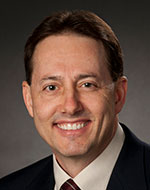 Mark Kahn is a Senior Fellow for Lockheed Martin. He is the technical lead for 5G.mil programs for Lockheed Martin under the Corporate Engineering and Technology Organization (CETO).
Mark Kahn is a Senior Fellow for Lockheed Martin. He is the technical lead for 5G.mil programs for Lockheed Martin under the Corporate Engineering and Technology Organization (CETO).
Campbell Marshall, Omnispace {Confirmed}
Campbell Marshall leads U.S. and international government initiatives at Omnispace. In this role, he partners directly with U.S. and Allied governments and militaries to ensure that their mobile people and platforms will benefit from the resiliency and flexibility of Omnispace’s cutting edge 5G communications system. Separately, Campbell leads efforts to develop new international markets by creating stakeholder interest and support around the world. Previously, he was part of the investment team at the Xerion Fund, a multi-billion-dollar hedge fund within Perella Weinberg Partners.
Jeffrey Reed, Virginia Tech {Confirmed}
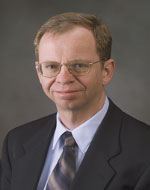 Professor Jeffrey Reed is a researcher in wireless communications, wireless security, cognitive radio, software radio, and spectrum access. Reed has co-authored more than 500 articles and books. Reed co-founded several commercial companies including PFP Cybersecurity, a company that provides security solutions for IoT devices, and Federated Wireless, a company commercializing spectrum sharing. Reed is the Founding Director of Wireless@VT, a research center and co-founder of Virginia Tech’s Hume Center for National Security and Technology. He served as the Interim Director of the Commonwealth Cyber Initiative and currently serves as its CTO. Dr. Reed is a Fellow of the IEEE.
Professor Jeffrey Reed is a researcher in wireless communications, wireless security, cognitive radio, software radio, and spectrum access. Reed has co-authored more than 500 articles and books. Reed co-founded several commercial companies including PFP Cybersecurity, a company that provides security solutions for IoT devices, and Federated Wireless, a company commercializing spectrum sharing. Reed is the Founding Director of Wireless@VT, a research center and co-founder of Virginia Tech’s Hume Center for National Security and Technology. He served as the Interim Director of the Commonwealth Cyber Initiative and currently serves as its CTO. Dr. Reed is a Fellow of the IEEE.
Prof. Brian Kelley, PI JBSA 5G PMO {Invited}
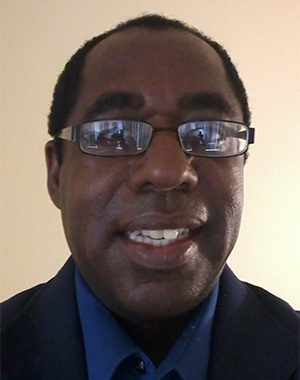 Dr. Kelley received his BSEE from Cornell University's College of Electrical Engineering in Ithaca, NY, graduating Tau Beta Pi and Eta Kappa Nu. He received his MSEE and PhD in E.E. from Georgia Tech in 1992, where he was an Office of Naval Research Fellow and a Georgia Tech Presidential Fellow with a research focus on communications, Signal Processing, and high-performance computing architectures. He spent 10+ years in the industry with both Motorola and Freescale. Since 2007, Dr. Kelley has been an Associate Professor of Electrical and Computer Engineering at the University of Texas at San Antonio (UTSA). At UTSA, Dr. Kelley is Director of the Wireless Information and Next Generation Systems Laboratory (WINGS), emphasizing 5G, beyond 5G, and 6G Communications. Dr. Kelley has received over $3.3M in research funding from NSF, ONR, AFRL DoE, and DoD. He has over 70 refereed publications and holds 11 U.S. patents. At UTSA, Dr. Kelley instructs 5G-New Radio Communications, Internet of Things (IoT), Wireless, Software Engineering, and Random Signals and Noise. In 2019, Dr. Kelley was an Assistant Associate Dean's Fellow. In 2020, Dr. Kelley was named Principal Investigator in two programs--5G Core Capabilities & Security and 5G Telemedicine by OUSD R&E and the JBSA Program Management Office (PMO). At the JBSA 5G PMO, he is developing the premier 5G experimental site at JBSA, encompassing 5G security, Network Slicing, and 5G-AR in a 5G Stand Alone (SA) network. In 2021, Dr. Kelley was named a Day One Technology Policy Accelerator Fellow in 5G Connected Autonomous Vehicles by the Day One Project.
Dr. Kelley received his BSEE from Cornell University's College of Electrical Engineering in Ithaca, NY, graduating Tau Beta Pi and Eta Kappa Nu. He received his MSEE and PhD in E.E. from Georgia Tech in 1992, where he was an Office of Naval Research Fellow and a Georgia Tech Presidential Fellow with a research focus on communications, Signal Processing, and high-performance computing architectures. He spent 10+ years in the industry with both Motorola and Freescale. Since 2007, Dr. Kelley has been an Associate Professor of Electrical and Computer Engineering at the University of Texas at San Antonio (UTSA). At UTSA, Dr. Kelley is Director of the Wireless Information and Next Generation Systems Laboratory (WINGS), emphasizing 5G, beyond 5G, and 6G Communications. Dr. Kelley has received over $3.3M in research funding from NSF, ONR, AFRL DoE, and DoD. He has over 70 refereed publications and holds 11 U.S. patents. At UTSA, Dr. Kelley instructs 5G-New Radio Communications, Internet of Things (IoT), Wireless, Software Engineering, and Random Signals and Noise. In 2019, Dr. Kelley was an Assistant Associate Dean's Fellow. In 2020, Dr. Kelley was named Principal Investigator in two programs--5G Core Capabilities & Security and 5G Telemedicine by OUSD R&E and the JBSA Program Management Office (PMO). At the JBSA 5G PMO, he is developing the premier 5G experimental site at JBSA, encompassing 5G security, Network Slicing, and 5G-AR in a 5G Stand Alone (SA) network. In 2021, Dr. Kelley was named a Day One Technology Policy Accelerator Fellow in 5G Connected Autonomous Vehicles by the Day One Project.
Description: 5G architectures and use cases for Non-Terrestrial Networks (NTN) are rapidly emerging. Critical details involving spectrum, Sidelink capabilities, and integration into the 3GPP standards are currently being defined. This panel will address key challenges, capabilities, and needed changes to existing 5G standards in order to realize NTN in support of DoD use cases and applications.
Panel 7: Achieving Spectrum Superiority Through Collaboration Between Department of Defense and the National Spectrum Consortium
Date: Monday, 29 November 2021
Time: 13:30-15:00 (Session 1)
Room: Pacific 19, First Floor (Ground Level)
Organizer:
Lizy Paul, National Spectrum Consortium (NSC), Lockheed Martin
 Lizy Paul is the Elected Chair of the National Spectrum Consortium. Lizy is currently the Director of 5G.MIL™ Programs for Lockheed Martin Corporation. In this role, Lizy helps lead the strategy, planning, and execution of the enterprise 5G.MIL™ IR&D portfolio; organize and facilitate external advisory group reviews and standards body engagements; and support technology transition to business areas for programs and new business capture. Prior to her current position with Lockheed Martin, she was the Director of Technical Strategy for the Defense Communications, Datalinks and Networking Solutions capabilities and products at Collins Aerospace, a Raytheon Company. Paul has a Master of Science degree in Electrical Engineering from Johns Hopkins University, Maryland, United States and an Executive MBA from University of Iowa, United States. She holds 16 patents in the area of RF Communications and Networking technologies
Lizy Paul is the Elected Chair of the National Spectrum Consortium. Lizy is currently the Director of 5G.MIL™ Programs for Lockheed Martin Corporation. In this role, Lizy helps lead the strategy, planning, and execution of the enterprise 5G.MIL™ IR&D portfolio; organize and facilitate external advisory group reviews and standards body engagements; and support technology transition to business areas for programs and new business capture. Prior to her current position with Lockheed Martin, she was the Director of Technical Strategy for the Defense Communications, Datalinks and Networking Solutions capabilities and products at Collins Aerospace, a Raytheon Company. Paul has a Master of Science degree in Electrical Engineering from Johns Hopkins University, Maryland, United States and an Executive MBA from University of Iowa, United States. She holds 16 patents in the area of RF Communications and Networking technologies
Moderator:
Joe Molnar, Naval Research Lab (NRL)
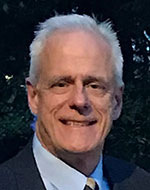 Mr. Joseph Molnar is the Section Head of the Systems Integration and Instrumentation Section at the Naval Research Laboratory with responsibilities for research and development in the area of cognitive radios and their application to military networks. Mr. Molnar obtained his bachelors and masters degrees in physics respectively from Washington and Jefferson College and the Pennsylvania State University. He has been with the NRL since 1986 with prior positions at the Naval Sea Systems Command and the Space and Naval Warfare Systems Command. While at the NRL he developed the computer and network security program for the DoD High Performance Computing Program. His current work involves developing technologies to enable the use of cognitive radios for military applications and communications. He employs his research activities to elucidate technologies that are applicable to integrated multifunction systems and is the communications lead for ONR Integrated Topside, Innovative Naval Prototype Program.
Mr. Joseph Molnar is the Section Head of the Systems Integration and Instrumentation Section at the Naval Research Laboratory with responsibilities for research and development in the area of cognitive radios and their application to military networks. Mr. Molnar obtained his bachelors and masters degrees in physics respectively from Washington and Jefferson College and the Pennsylvania State University. He has been with the NRL since 1986 with prior positions at the Naval Sea Systems Command and the Space and Naval Warfare Systems Command. While at the NRL he developed the computer and network security program for the DoD High Performance Computing Program. His current work involves developing technologies to enable the use of cognitive radios for military applications and communications. He employs his research activities to elucidate technologies that are applicable to integrated multifunction systems and is the communications lead for ONR Integrated Topside, Innovative Naval Prototype Program.
Panelists:
Lizy Paul, National Spectrum Consortium (NSC), Lockheed Martin {Confirmed}
 Lizy Paul is the Elected Chair of the National Spectrum Consortium. Lizy is currently the Director of 5G.MIL™ Programs for Lockheed Martin Corporation. In this role, Lizy helps lead the strategy, planning, and execution of the enterprise 5G.MIL™ IR&D portfolio; organize and facilitate external advisory group reviews and standards body engagements; and support technology transition to business areas for programs and new business capture. Prior to her current position with Lockheed Martin, she was the Director of Technical Strategy for the Defense Communications, Datalinks and Networking Solutions capabilities and products at Collins Aerospace, a Raytheon Company. Paul has a Master of Science degree in Electrical Engineering from Johns Hopkins University, Maryland, United States and an Executive MBA from University of Iowa, United States. She holds 16 patents in the area of RF Communications and Networking technologies
Lizy Paul is the Elected Chair of the National Spectrum Consortium. Lizy is currently the Director of 5G.MIL™ Programs for Lockheed Martin Corporation. In this role, Lizy helps lead the strategy, planning, and execution of the enterprise 5G.MIL™ IR&D portfolio; organize and facilitate external advisory group reviews and standards body engagements; and support technology transition to business areas for programs and new business capture. Prior to her current position with Lockheed Martin, she was the Director of Technical Strategy for the Defense Communications, Datalinks and Networking Solutions capabilities and products at Collins Aerospace, a Raytheon Company. Paul has a Master of Science degree in Electrical Engineering from Johns Hopkins University, Maryland, United States and an Executive MBA from University of Iowa, United States. She holds 16 patents in the area of RF Communications and Networking technologies
Sumit Roy, OUSD (R&E) {Confirmed}
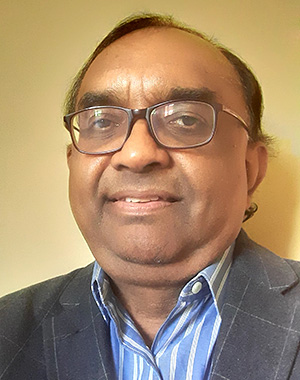 Sumit Roy (Fellow, IEEE) received the B. Tech. degree from the Indian Institute of Technology (Kanpur) in 1983, and the M. S. and Ph. D. degrees from the University of California (Santa Barbara), all in Electrical & Comp. Engineering in 1985 and 1988 respectively, as well as an M. A. in Statistics and Applied Probability in 1988. He served as Integrated Systems Professor (2014-19) of Electrical & Computer Engineering, Univ. of Washington-Seattle where his research and technology transition interests include analysis/design of wireless communication and sensor network systems with an emphasis on 5G & beyond standards, multi-standard inter-networking and spectrum coexistence using software-defined networks. He spent 2001-03 at Intel Wireless Technology Lab as a Senior Researcher engaged in systems architecture and standards development for ultra-wideband systems (Wireless PANs) and next generation high-speed wireless LANs. He has been active in IEEE Communications Society in various roles (journal editor and Distinguished Lecturer) and was elevated to IEEE Fellow (2007) for ``contributions to multi-user communications theory and cross-layer design of wireless networking standards”. He currently serves as Program Lead for Innovate Beyond 5G for OUSD R&E Beyond 5G initiative https://5g-to-xg.org.
Sumit Roy (Fellow, IEEE) received the B. Tech. degree from the Indian Institute of Technology (Kanpur) in 1983, and the M. S. and Ph. D. degrees from the University of California (Santa Barbara), all in Electrical & Comp. Engineering in 1985 and 1988 respectively, as well as an M. A. in Statistics and Applied Probability in 1988. He served as Integrated Systems Professor (2014-19) of Electrical & Computer Engineering, Univ. of Washington-Seattle where his research and technology transition interests include analysis/design of wireless communication and sensor network systems with an emphasis on 5G & beyond standards, multi-standard inter-networking and spectrum coexistence using software-defined networks. He spent 2001-03 at Intel Wireless Technology Lab as a Senior Researcher engaged in systems architecture and standards development for ultra-wideband systems (Wireless PANs) and next generation high-speed wireless LANs. He has been active in IEEE Communications Society in various roles (journal editor and Distinguished Lecturer) and was elevated to IEEE Fellow (2007) for ``contributions to multi-user communications theory and cross-layer design of wireless networking standards”. He currently serves as Program Lead for Innovate Beyond 5G for OUSD R&E Beyond 5G initiative https://5g-to-xg.org.
Sastry Kompella, US Naval Research Lab (NRL) {Confirmed}
Sastry Kompella (S’04–M’06–SM’12) received the Ph.D. degree in electrical and computer engineering from the Virginia Polytechnic Institute and State University, Blacksburg, VA, USA, in 2006. Currently, he is the Section Head for the Wireless Network Research Section under the Information Technology Division, U.S. Naval Research Laboratory, Washington, DC, USA. His research interests include various aspects of wireless networks, including cognitive radio, Spectrum Sharing and Dynamic Spectrum Access, Age of Information and AI/ML for RF
Tommaso Melodia, Northeastern University {Confirmed}
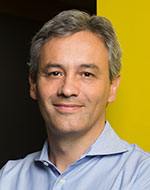 I am the William Lincoln Smith Professor with the Department of Electrical and Computer Engineering at Northeastern University in Boston. I am also the Founding Director of the Institute for the Wireless Internet of Things and the Director of Research for the PAWR Project Office. I am also a co-founder of Bionet Sonar. I received my Laurea (integrated BS and MS) from the University of Rome - La Sapienza and his Ph.D. in Electrical and Computer Engineering from the Georgia Institute of Technology in 2007. I am an IEEE Fellow and recipient of the National Science Foundation CAREER award.
I am the William Lincoln Smith Professor with the Department of Electrical and Computer Engineering at Northeastern University in Boston. I am also the Founding Director of the Institute for the Wireless Internet of Things and the Director of Research for the PAWR Project Office. I am also a co-founder of Bionet Sonar. I received my Laurea (integrated BS and MS) from the University of Rome - La Sapienza and his Ph.D. in Electrical and Computer Engineering from the Georgia Institute of Technology in 2007. I am an IEEE Fellow and recipient of the National Science Foundation CAREER award.
David Simpson, Virginia Tech {Confirmed}
Currently, Professor at Virginia Tech. Prior to joining Virginia Tech, Professor Simpson served as the Chief of the Public Safety and Homeland Security Bureau for the Federal Communications Commission (FCC). He leads a private consulting practice covering the Telecommunications, Defense and Public Safety sectors. His Flag Officer Assignments in the Navy include Senior Procurement Executive and Vice Director of the Defense Information Systems Agency, Director of Navy Networks and CIO/J6 for U.S. and Coalition Forces in Iraq. He served over thirty years in the Navy in technology leadership positions around the world.
Description: Use of the Spectrum efficiently in both contested and congested environments is becoming more and more critical for mission success. This panel will discuss the ongoing collaboration efforts between DoD and the members of the National Spectrum Consortium to support DoD Spectrum Superiority Strategy. The efforts include DoD/NSC co-chaired Working Groups and OTA prototyping programs. These efforts will enable innovative technologies, capabilities and best practices to avoid contention and/or to share spectrum efficiently between DoD to DoD, DoD to Federal and DoD to Civilian spectrum dependent systems.
The purpose of the panel would be do present the partnership of the DoD with the NSC to address sharing technologies and develop methods and practices to further sharing capabilities between military, federal and commercial entities.
Panel 8: Heterogeneous Processing for Software Defined Radios
Date: Monday, 29 November 2021
Time: 13:30-15:00 (Session 1)
Room: Pacific 18, Frist Floor (Ground Level)
Organizer:
Robert Miller, Peraton Labs
Dr. Miller is a Research Director at Peraton Labs (Wireless Systems & Networks Department). He has over two decades of electronic warfare (EW) experience in the areas of system/algorithm development, implementation, fielding, and testing. Rob has led multiple EW programs resulting in single and multi sensor system deployment for basic and advanced EW operations. Development platforms have consisted of a variety of heterogeneous compute devices, including commercial and tactical software defined radio (SDR) platforms. His research interests include wireless communications, cognitive radio, spatial processing, geolocation, RF deep learning, heterogeneous computing, and leveraging physical layer information to enhance security in wireless systems.
Moderator:
Joshua Morman, Peraton Labs
Josh Morman is a Senior Research Scientist at Peraton Labs where he works primarily on wireless communications applications for Software Defined Radio. He is also the co-maintainer of the GNU Radio Project and actively working on the 4.0 Runtime support for heterogeneous architectures.
Panelists:
Thomas Rondeau, DARPA {Confirmed}
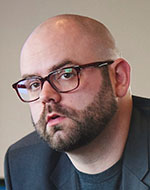 Tom Rondeau is a DARPA program manager with a focus on adaptive and reconfigurable radios, improving the development cycle for new signal-processing techniques, and exploring new approaches and applications with the electromagnetic spectrum. Prior to joining DARPA, Tom was the maintainer and lead developer of the GNU Radio project, a visiting researcher with the University of Pennsylvania, and an Adjunct with the IDA Center for Communications Research in Princeton, NJ.
Tom Rondeau is a DARPA program manager with a focus on adaptive and reconfigurable radios, improving the development cycle for new signal-processing techniques, and exploring new approaches and applications with the electromagnetic spectrum. Prior to joining DARPA, Tom was the maintainer and lead developer of the GNU Radio project, a visiting researcher with the University of Pennsylvania, and an Adjunct with the IDA Center for Communications Research in Princeton, NJ.
Seth Hitefield, Oak Ridge National Labs {Confirmed}
Researcher, developer, innovator in this field
Dr. Seth Hitefield is a Research Scientist in the Computational Systems Engineering and Cybernetics group in the Computational Sciences and Engineering Division (CSED) at Oak Ridge National Laboratory (ORNL). Prior to joining ORNL, he earned his Ph.D. from Virginia Tech in 2019, where he also worked as a graduate research assistant at the Hume Center for National Security and Technology.
At ORNL, Dr. Hitefield’s research includes building software defined infrastructures to create scientific federations that connect instruments from different user facilities to leadership class, high performance computing (HPC) systems, and accelerating signal processing applications such as Software Defined Radio (SDR) on high-performance, heterogeneous, embedded systems such as the NVIDIA Xavier and Qualcomm Snapdragon processors. His other research interests include developing software infrastructures for simulating large-scale complex systems, satellite systems, wireless communications, and cyber-security.
While at Virginia Tech, Dr. Hitefield’s research focused on wireless communications security where he developed architectures for secure software radios using a defense-in-depth approach to protect vital system components from exploits against the SDR software stack itself. He also worked with Space@VT developing the network and systems architectures for the Virginia Tech Ground Station and designing and launching several CubeSat projects that are currently in orbit. He has participated in many other research projects covering a wide variety of topics including cyber-security, network traffic management, operating systems, virtualization, embedded hardware, automotive systems, wireless communications, and satellite systems. Dr. Hitefield is an IEEE member and has published multiple papers in these various topic areas.
Daniel Bliss, Arizona State University {Confirmed}
Prof. Daniel W. Bliss (https://bliss.asu.edu) is a Professor at Arizona State University and Director of ASU’s Center for Wireless Information Systems and Computational Architectures (https://wisca.asu.edu). Dan received his Ph.D. in Physics from the University of California at San Diego (1997), and his B.S. in Electrical Engineering from ASU (1989). He is responsible for foundational work in electronic protection, adaptive MIMO radar, MIMO communications, distributed-coherent systems, and RF convergence. Dan is a Fellow of the IEEE and received the 2021 IEEE Warren D. White Award for Excellence in Radar Engineering. He has published two textbooks and more than 200 technical articles.
Jim Kulp, Parera Information Services {Invited}
Open CPI architect
Paul Tilghman, Microsoft {Confirmed}
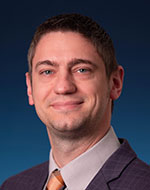 Paul Tilghman is the Senior Director of Azure Spectrum Technologies at Microsoft, where he focuses on the intersection of wireless communications, software radio, and AI technologies with the cloud. The team is responsible for cloud-borne software defined radio, and access to Azure anywhere on the planet, at any security level through terrestrial (5G) and space-based (SATCOM) wireless communications.
Paul Tilghman is the Senior Director of Azure Spectrum Technologies at Microsoft, where he focuses on the intersection of wireless communications, software radio, and AI technologies with the cloud. The team is responsible for cloud-borne software defined radio, and access to Azure anywhere on the planet, at any security level through terrestrial (5G) and space-based (SATCOM) wireless communications.
Prior to joining Microsoft in 2019, Paul was a Program Manager at the Defense Advanced Research Projects Agency (DARPA) where he defined and led cornerstone programs of the nation’s wireless & AI research portfolio. While at DARPA Paul fielded the first Electronic Warfare systems to employ AI, created a program to build next-generation waferscale super computers for wireless emulation, launched the RF Machine Learning Systems program which created the world’s first neural networks designed for RF signal processing, and created the Spectrum Collaboration Challenge in which winning teams created collaborative AI systems to dynamically manage shared spectrum.
Prior to joining DARPA, Mr. Tilghman was a senior research engineer at Lockheed Martin’s Advanced Technology Laboratories where he led programs in adaptive electronic warfare, signals intelligence and non-cooperative geolocation.
Description: Modern compute platforms rely on a variety of processing elements (CPU, GPU, FPGA, TPU, etc.) to push the bounds of performance beyond what is possible with CPU processing alone. Software Defined Radio (SDR) implementations that are natively capable of utilizing the available resources for signal processing operations can leverage the flexibility of SDR frameworks, bringing benefits to low SWAP platforms. This, however, requires not only suitable radios with appropriate processing components, but the tools, methods, and abstractions to efficiently utilize all of the available compute resources. This panel will discuss the current state of the art in heterogeneous platforms for SDR and the challenges associated with widespread adoption of SDR frameworks on these platforms for use within industry, academia, and government.
Panel 9: Zero Trust Architecture: How We Got to Where We Are?
Date: Wednesday, 1 December 2021
Time: 10:20-12:00 (Session 6)
Room: Pacific 18, First Floor (Ground Level)
Organizer & Moderator:
Dr. Tommy Gardner, HP Inc.
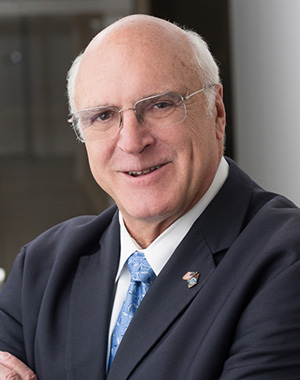 Tommy Gardner is HP’s Chief Technology Officer for HP Federal, spanning the US Federal Agencies, Higher Education, K-12 Education, State and Local government customer segments, as well as Federal Systems Integrators. His current responsibilities include technology leadership, strategic technology plans, product and technology strategies, sales force technical support, and customer and partner relationships. Tommy holds a B.S. in Mechanical Engineering from the U.S. Naval Academy, a Masters in Public Administration from Harvard University, an M.S. in Management of Technology from MIT and a Ph. D. in Energy Economics from George Washington University. He is a Professional Engineer, an ASME Fellow, and serves on the ASME Board of Governors, the ANSI Board of Directors and the U. S. Council on Competitiveness as the Co-chair of the Advanced Computer Roundtable.
Tommy Gardner is HP’s Chief Technology Officer for HP Federal, spanning the US Federal Agencies, Higher Education, K-12 Education, State and Local government customer segments, as well as Federal Systems Integrators. His current responsibilities include technology leadership, strategic technology plans, product and technology strategies, sales force technical support, and customer and partner relationships. Tommy holds a B.S. in Mechanical Engineering from the U.S. Naval Academy, a Masters in Public Administration from Harvard University, an M.S. in Management of Technology from MIT and a Ph. D. in Energy Economics from George Washington University. He is a Professional Engineer, an ASME Fellow, and serves on the ASME Board of Governors, the ANSI Board of Directors and the U. S. Council on Competitiveness as the Co-chair of the Advanced Computer Roundtable.
Panelists:
BG (USAF, Ret.) Greg Touhill, CMU Cert {Confirmed}
Gregory J. Touhill is director of the world-renowned CERT Division of the Carnegie Mellon University Software Engineering Institute, where he leads a diverse group of researchers, software engineers, security analysts, and digital intelligence specialists working together to research security vulnerabilities in software products, contribute to long-term changes in networked systems, and develop cutting-edge information and training to improve the practice of cybersecurity.
Touhill was appointed by former President Barack Obama to be the first chief information security officer (CISO) of the United States government. Previously, he served in the Department of Homeland Security (DHS) as deputy assistant secretary in the Office of Cybersecurity and Communications. Before joining the Software Engineering Institute, he was president of Appgate Federal, a provider of cybersecurity products and services to civilian government and defense agencies.
Touhill is a 30-year veteran of the U.S. Air Force where he was an operational commander at the squadron, group, and wing levels. He served as a senior leader of military cybersecurity and information technology programs, culminating as the chief information officer of the United States Transportation Command, one of the nation’s 10 combatant commands. A combat veteran, he is the recipient of numerous awards and decorations including the Bronze Star medal and the Air Force Science and Engineering Award. He retired from the Air Force with the rank of brigadier general.
Touhill received his bachelor’s degree in political science (minor in engineering) from the Pennsylvania State University, a master’s degree in systems management from the University of Southern California, a master’s degree in strategic studies from the Air War College, and a certificate from the Harvard Kennedy School. He maintains both the CISSP and CISM certifications. He is an adjunct faculty member of the CMU Heinz College of Information Systems and Public Policy and the Deakin University (Australia) Centre for Cybersecurity Research and Innovation. A member of many organizational boards and committees and recipient of many awards, Touhill was recognized by Security Magazine as one of its Most Influential People in Security and by Federal Computer Week in the Federal 100. He is the co-author of the books Cybersecurity for Executives: A Practical Guide and Commercialization of Innovative Technologies.
Dr. Duncan Earl, President of Qubitekk {Confirmed}
 Dr. Earl was a senior Quantum Research at Oak Ridge National Labs, who left to found a Quantum Security company.
Dr. Earl was a senior Quantum Research at Oak Ridge National Labs, who left to found a Quantum Security company.
Prior to founding Qubitekk Dr. Earl had over 20 years of experience developing optical technologies for both private businesses and government organizations. As a former staff member at the Department of Energy’s Oak Ridge National Laboratory (ORNL), Dr. Earl was a researcher with ORNL’s Cyber Warfare group and Quantum Information Sciences team.
Bob Kolasky, DHS, CISA {Confirmed}
Bob Kolasky was selected to lead the Cybersecurity and Infrastructure Security Agency’s (CISA) National Risk Management Center (NRMC) in 2018, at the Department of Homeland Security (DHS). As one of CISA’s Assistant Directors, he oversees the Center’s efforts to facilitate a strategic, cross-sector risk management approach to cyber and physical threats to critical infrastructure. The Center provides a central venue for government and industry to combine their knowledge and capabilities in a uniquely collaborative and forward-looking environment. Center activities support both operational and strategic unified risk management efforts.
Description: With the recent release of NIST SP 800-207 Zero Trust Architecture has caught the attention of many concerned about cybersecurity in the Federal Government. The military systems will be specifically targeted. How can we use the principles and philosophy of Zero Trust to protect our systems and defend against a cyber adversary? What is the history of Zero Trust that brought us to where we are today? How can we apply these principles to protect the Supply Chain, specifically the Cyber Supply Chain?
Panel 10: Towards Resilient Cyber-Physical Systems: State of the Art and Future Challenges
Date: Wednesday, 1 December 2021
Time: 13:30-15:00 (Session 7)
Room: Pacific 18, First Floor (Ground Level)
Organizer:
Miroslav Pajic, Department of Electrical and Computer Engineering, Department of Computer Science, Duke University
Miroslav Pajic is the Dickinson Family Associate Professor at Duke University. His research interests focus on the design and analysis of high-assurance cyber-physical systems (CPS) with varying levels of autonomy and human interaction, at the intersection of embedded systems, AI, learning and controls, formal methods and robotics. He received various awards including the NSF CAREER Award, ONR Young Investigator Program Award, ACM SIGBED Early-Career Researcher Award, IEEE TCCPS Early-Career Award, IBM Faculty Award, ACM SIGBED Frank Anger Memorial Award, the Joseph and Rosaline Wolf Dissertation Award, as well as seven Best Paper and Runner-up Awards at top CPS venues.
Moderator:
Saman Zonouz, Department of Electrical and Computer Engineering, Rutgers University
Saman Zonouz's research focuses on cyber-physical systems security, artificial intelligence and embedded systems. He has been awarded by Presidential Early Career Awards for Scientists and Engineers (PECASE) by the United States President, NSF CAREER Award, National Security Agency (NSA) Significant Research in Cyber Security, Google Security Award and Hall of Fame Recognition, Top-3 Demo at IEEE SmartGridComm, the Faculty Fellowship Award by Air Force Research Laboratory (AFRL), the Best Student Paper Award at IEEE SmartGridComm, the University EARLY CAREER Research award as well as the Provost Research Award.
Panelists:
Dongyan Xu, Department of Computer Science, Purdue University {Proposed}
Dongyan Xu is a Samuel Conte Professor of Computer Science at Purdue University and director of CERIAS, Purdue’s cybersecurity research and education center. His research focuses on cyber and cyber-physical security, especially for emerging platforms such as autonomous vehicles, IoT, and digital manufacturing systems. Past and current sponsors of his research include the AFOSR, AFRL, CERDEC, DARPA, DOE, IARPA, NSA, NSF, ONR, and Sandia National Labs. He has received multiple awards from major cybersecurity conferences for his research papers on kernel malware defense, memory forensics, advanced persistent threat (APT) analytics, and IoT vulnerability discovery.
Vincent Sritapan, Cybersecurity and Infrastructure Security Agency, Department of Homeland Security {Confirmed}
Vincent Sritapan is an (Acting) Section Chief in the Cybersecurity and Infrastructure Security Agency’s (CISA) Cyber Quality Service Management Office (QSMO). In this position, Sritapan is leading the development and delivery of mobile security services and capabilities to help protect the networks of Federal and State, Local, Tribal and Territorial government agencies. As a Section Chief in the Cybersecurity QSMO, Sritapan is leading CISA’s cross-functional teams that are tackling emerging risks and developing cybersecurity services to address enterprise mobile challenges, including mobile device, mobile application, and mobile network security. He is Co-Chair of the Federal CIO Council’s Federal Mobility Group, a cross-agency forum helping drive strategy development in mobility and sharing information across Federal departments and agencies, and as Co-Chair of the Committee for National Security Systems’ Mobile and Wireless Security (CNSS) Working Group. Most recently, Sritapan served six years as the Mobile Security R&D Program Manager at the Department of Homeland Security Science and Technology Directorate, where he led R&D efforts in mobile security. He also is a direct commissioned office in Information Warfare in the U.S. Navy Reserve.
Shamina Hossain-McKenzie, Cyber Resilience R&D Department, Sandia National Laboratories {Confirmed}
Dr. Shamina Hossain-McKenzie is a Principal Member of the Technical Staff in the Cyber Resilience R&D department at Sandia National Laboratories. She received her electrical engineering Ph. D. and Master’s degrees from the University of Illinois at Urbana-Champaign in 2017 and 2014, respectively, and her B.S. degree from Washington State University in 2012. Her research focuses on the intersection of power system analytics and cybersecurity, including cyber-physical modeling and analysis, intrusion detection systems, adaptive special protection schemes, and distributed response techniques.
Miroslav Pajic, Department of Electrical and Computer Engineering, Department of Computer Science, Duke University {Confirmed}
Miroslav Pajic is the Dickinson Family Associate Professor at Duke University. His research interests focus on the design and analysis of high-assurance cyber-physical systems (CPS) with varying levels of autonomy and human interaction, at the intersection of embedded systems, AI, learning and controls, formal methods and robotics. He received various awards including the NSF CAREER Award, ONR Young Investigator Program Award, ACM SIGBED Early-Career Researcher Award, IEEE TCCPS Early-Career Award, IBM Faculty Award, ACM SIGBED Frank Anger Memorial Award, the Joseph and Rosaline Wolf Dissertation Award, as well as seven Best Paper and Runner-up Awards at top CPS venues.
Saman Zonouz, Department of Electrical and Computer Engineering, Rutgers University {Confirmed}
Saman Zonouz's research focuses on cyber-physical systems security, artificial intelligence and embedded systems. He has been awarded by Presidential Early Career Awards for Scientists and Engineers (PECASE) by the United States President, NSF CAREER Award, National Security Agency (NSA) Significant Research in Cyber Security, Google Security Award and Hall of Fame Recognition, Top-3 Demo at IEEE SmartGridComm, the Faculty Fellowship Award by Air Force Research Laboratory (AFRL), the Best Student Paper Award at IEEE SmartGridComm, the University EARLY CAREER Research award as well as the Provost Research Award.
Ryan Craven, Program Officer at ONR {Confirmed}
Description: Until recently, security of cyber-physical systems (CPS) with varying levels of autonomy (including high) has usually been an afterthought. However, the increasing set of functionalities, network interoperability, and system design complexity may introduce easily exploitable security vulnerabilities. In addition, tight coupling of computation and communication substrates with sensing and actuation components has resulted in significant changes in the system design process that has to ensure resilient system operation; the heterogeneity of these systems has challenged the standard design and analysis methods that completely ignore cross-cutting constraints, as component-level understanding usually does not translate to the system level. This timely panel will focus on recent advances as well as future challenges that need to be addressed to ensure resilient operation of military CPS in known and unknown operating conditions. The panel will provide insights into both the limitations and opportunities of deploying more conventional cyber security techniques in this domain, as well as the unique set of cyber-physical challenges due to the tight interaction with the physical world. The panel will consist of 6 panelists with complementary expertise in the domain of CPS security and resilient system design.
Panel 11: Accelerating 5G/NextG Innovation and DoD Acquisition Options by Advancing Open Architecture and Standardization
Date: Tuesday, 30 November 2021
Time: 10:20-12:00 (Session 3)
Room: Pacific 19, First Floor (Ground Level)
Organizer:
Lizy Paul, National Spectrum Consortium (NSC), Lockheed Martin
 Lizy Paul is the Elected Chair of the National Spectrum Consortium. Lizy is also the Director of 5G.MIL™ Programs for Lockheed Martin Corporation. Prior to her current position with Lockheed Martin, she was the Director of Technical Strategy for the Defense Communications Solutions at Collins Aerospace, a Raytheon Company. Paul has a MSEE from Johns Hopkins University and an MBA from University of Iowa. She holds 16 patents in RF Communications technologies. She has held Engineering leadership and research positions at Motorola, Ericsson and Hughes Network Systems.
Lizy Paul is the Elected Chair of the National Spectrum Consortium. Lizy is also the Director of 5G.MIL™ Programs for Lockheed Martin Corporation. Prior to her current position with Lockheed Martin, she was the Director of Technical Strategy for the Defense Communications Solutions at Collins Aerospace, a Raytheon Company. Paul has a MSEE from Johns Hopkins University and an MBA from University of Iowa. She holds 16 patents in RF Communications technologies. She has held Engineering leadership and research positions at Motorola, Ericsson and Hughes Network Systems.
Panelists:
Lizy Paul, National Spectrum Consortium (NSC), Lockheed Martin {Confirmed}
 Lizy Paul is the Elected Chair of the National Spectrum Consortium. Lizy is also the Director of 5G.MIL™ Programs for Lockheed Martin Corporation. Prior to her current position with Lockheed Martin, she was the Director of Technical Strategy for the Defense Communications Solutions at Collins Aerospace, a Raytheon Company. Paul has a MSEE from Johns Hopkins University and an MBA from University of Iowa. She holds 16 patents in RF Communications technologies. She has held Engineering leadership and research positions at Motorola, Ericsson and Hughes Network Systems.
Lizy Paul is the Elected Chair of the National Spectrum Consortium. Lizy is also the Director of 5G.MIL™ Programs for Lockheed Martin Corporation. Prior to her current position with Lockheed Martin, she was the Director of Technical Strategy for the Defense Communications Solutions at Collins Aerospace, a Raytheon Company. Paul has a MSEE from Johns Hopkins University and an MBA from University of Iowa. She holds 16 patents in RF Communications technologies. She has held Engineering leadership and research positions at Motorola, Ericsson and Hughes Network Systems.
Sumit Roy, OUSdD (R&E) {Confirmed}
 Sumit Roy (Fellow, IEEE) received the B. Tech. degree from the Indian Institute of Technology (Kanpur) in 1983, and the M. S. and Ph. D. degrees from the University of California (Santa Barbara), all in Electrical & Comp. Engineering in 1985 and 1988 respectively, as well as an M. A. in Statistics and Applied Probability in 1988. He served as Integrated Systems Professor (2014-19) of Electrical & Computer Engineering, Univ. of Washington-Seattle where his research and technology transition interests include analysis/design of wireless communication and sensor network systems with an emphasis on 5G & beyond standards, multi-standard inter-networking and spectrum coexistence using software-defined networks. He spent 2001-03 at Intel Wireless Technology Lab as a Senior Researcher engaged in systems architecture and standards development for ultra-wideband systems (Wireless PANs) and next generation high-speed wireless LANs. He has been active in IEEE Communications Society in various roles (journal editor and Distinguished Lecturer) and was elevated to IEEE Fellow (2007) for ``contributions to multi-user communications theory and cross-layer design of wireless networking standards”. He currently serves as Program Lead for Innovate Beyond 5G for OUSD R&E Beyond 5G initiative https://5g-to-xg.org.
Sumit Roy (Fellow, IEEE) received the B. Tech. degree from the Indian Institute of Technology (Kanpur) in 1983, and the M. S. and Ph. D. degrees from the University of California (Santa Barbara), all in Electrical & Comp. Engineering in 1985 and 1988 respectively, as well as an M. A. in Statistics and Applied Probability in 1988. He served as Integrated Systems Professor (2014-19) of Electrical & Computer Engineering, Univ. of Washington-Seattle where his research and technology transition interests include analysis/design of wireless communication and sensor network systems with an emphasis on 5G & beyond standards, multi-standard inter-networking and spectrum coexistence using software-defined networks. He spent 2001-03 at Intel Wireless Technology Lab as a Senior Researcher engaged in systems architecture and standards development for ultra-wideband systems (Wireless PANs) and next generation high-speed wireless LANs. He has been active in IEEE Communications Society in various roles (journal editor and Distinguished Lecturer) and was elevated to IEEE Fellow (2007) for ``contributions to multi-user communications theory and cross-layer design of wireless networking standards”. He currently serves as Program Lead for Innovate Beyond 5G for OUSD R&E Beyond 5G initiative https://5g-to-xg.org.
Jeffrey Reed, Virginia Tech {Confirmed}
 Professor Jeffrey Reed is a researcher in wireless communications, wireless security, cognitive radio, software radio, and spectrum access. Reed has co-authored more than 500 articles and books. Reed co-founded several commercial companies including PFP Cybersecurity, a company that provides security solutions for IoT devices, and Federated Wireless, a company commercializing spectrum sharing. Reed is the Founding Director of Wireless@VT, a research center and co-founder of Virginia Tech’s Hume Center for National Security and Technology. He served as the Interim Director of the Commonwealth Cyber Initiative and currently serves as its CTO. Dr. Reed is a Fellow of the IEEE.
Professor Jeffrey Reed is a researcher in wireless communications, wireless security, cognitive radio, software radio, and spectrum access. Reed has co-authored more than 500 articles and books. Reed co-founded several commercial companies including PFP Cybersecurity, a company that provides security solutions for IoT devices, and Federated Wireless, a company commercializing spectrum sharing. Reed is the Founding Director of Wireless@VT, a research center and co-founder of Virginia Tech’s Hume Center for National Security and Technology. He served as the Interim Director of the Commonwealth Cyber Initiative and currently serves as its CTO. Dr. Reed is a Fellow of the IEEE.
Prof. Brian Kelley, PI JBSA 5G PMO {Invited}
 Dr. Kelley received his BSEE from Cornell University's College of Electrical Engineering in Ithaca, NY, graduating Tau Beta Pi and Eta Kappa Nu. He received his MSEE and PhD in E.E. from Georgia Tech in 1992, where he was an Office of Naval Research Fellow and a Georgia Tech Presidential Fellow with a research focus on communications, Signal Processing, and high-performance computing architectures. He spent 10+ years in the industry with both Motorola and Freescale. Since 2007, Dr. Kelley has been an Associate Professor of Electrical and Computer Engineering at the University of Texas at San Antonio (UTSA). At UTSA, Dr. Kelley is Director of the Wireless Information and Next Generation Systems Laboratory (WINGS), emphasizing 5G, beyond 5G, and 6G Communications. Dr. Kelley has received over $3.3M in research funding from NSF, ONR, AFRL DoE, and DoD. He has over 70 refereed publications and holds 11 U.S. patents. At UTSA, Dr. Kelley instructs 5G-New Radio Communications, Internet of Things (IoT), Wireless, Software Engineering, and Random Signals and Noise. In 2019, Dr. Kelley was an Assistant Associate Dean's Fellow. In 2020, Dr. Kelley was named Principal Investigator in two programs--5G Core Capabilities & Security and 5G Telemedicine by OUSD R&E and the JBSA Program Management Office (PMO). At the JBSA 5G PMO, he is developing the premier 5G experimental site at JBSA, encompassing 5G security, Network Slicing, and 5G-AR in a 5G Stand Alone (SA) network. In 2021, Dr. Kelley was named a Day One Technology Policy Accelerator Fellow in 5G Connected Autonomous Vehicles by the Day One Project.
Dr. Kelley received his BSEE from Cornell University's College of Electrical Engineering in Ithaca, NY, graduating Tau Beta Pi and Eta Kappa Nu. He received his MSEE and PhD in E.E. from Georgia Tech in 1992, where he was an Office of Naval Research Fellow and a Georgia Tech Presidential Fellow with a research focus on communications, Signal Processing, and high-performance computing architectures. He spent 10+ years in the industry with both Motorola and Freescale. Since 2007, Dr. Kelley has been an Associate Professor of Electrical and Computer Engineering at the University of Texas at San Antonio (UTSA). At UTSA, Dr. Kelley is Director of the Wireless Information and Next Generation Systems Laboratory (WINGS), emphasizing 5G, beyond 5G, and 6G Communications. Dr. Kelley has received over $3.3M in research funding from NSF, ONR, AFRL DoE, and DoD. He has over 70 refereed publications and holds 11 U.S. patents. At UTSA, Dr. Kelley instructs 5G-New Radio Communications, Internet of Things (IoT), Wireless, Software Engineering, and Random Signals and Noise. In 2019, Dr. Kelley was an Assistant Associate Dean's Fellow. In 2020, Dr. Kelley was named Principal Investigator in two programs--5G Core Capabilities & Security and 5G Telemedicine by OUSD R&E and the JBSA Program Management Office (PMO). At the JBSA 5G PMO, he is developing the premier 5G experimental site at JBSA, encompassing 5G security, Network Slicing, and 5G-AR in a 5G Stand Alone (SA) network. In 2021, Dr. Kelley was named a Day One Technology Policy Accelerator Fellow in 5G Connected Autonomous Vehicles by the Day One Project.
Anand Shah Shah, Verizon - Global Network and Technology {Confirmed}
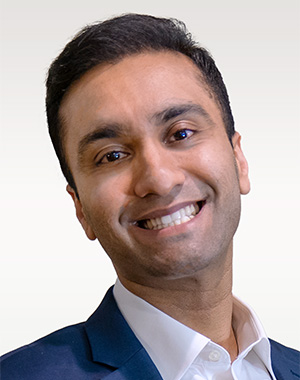 Anand is an innovative, forward thinking leader who thrives on solving the most complex business problems in today’s data-rich and tech-heavy environment. He manages a diversified portfolio of consumer and enterprise innovations including 5G, IoT, Multi-Access Edge Compute, Cloud, Private Networks, and Security Products. Anand has been with Verizon for 10+ years and rotated through many technology and leadership roles. He serves as the essential catalyst for developing and driving technology plans across the business.
Anand is an innovative, forward thinking leader who thrives on solving the most complex business problems in today’s data-rich and tech-heavy environment. He manages a diversified portfolio of consumer and enterprise innovations including 5G, IoT, Multi-Access Edge Compute, Cloud, Private Networks, and Security Products. Anand has been with Verizon for 10+ years and rotated through many technology and leadership roles. He serves as the essential catalyst for developing and driving technology plans across the business.
Raj Savoor, AT&T {Confirmed}
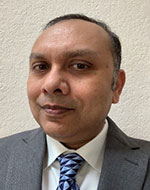 Raj Savoor is the Vice President of Network Analytics and Automation, AT&T Services Inc. In this role, Raj is responsible for the analytics and automation of AT&T’s wireless and wireline broadband networks in support of Consumer, Enterprise, Internet of Things, and Government services. Raj and his team support both operations and product teams across business units on both tactical and strategic initiatives including integrated access network planning, performance & capacity analytics, key SDN based automation initiatives, the 5G Innovation Studio, Open RAN architectures and outreach initiatives.
Raj Savoor is the Vice President of Network Analytics and Automation, AT&T Services Inc. In this role, Raj is responsible for the analytics and automation of AT&T’s wireless and wireline broadband networks in support of Consumer, Enterprise, Internet of Things, and Government services. Raj and his team support both operations and product teams across business units on both tactical and strategic initiatives including integrated access network planning, performance & capacity analytics, key SDN based automation initiatives, the 5G Innovation Studio, Open RAN architectures and outreach initiatives.
Raj has had an expansive set of experiences and responsibilities in his 30+ year career that began at Pacific Bell and continued through SBC to AT&T. Raj has worked extensively across multiple wireline access technologies from ADSL to GPON. He has also been a key lead in wireless network technology introductions including LTE, VoLTE, and now 5G while also supporting key initiatives transforming TDM to IP and migrating from legacy network architectures to SDN/Domain 2.0.
Raj has a Master of Science degree in Computer Science from the University of California at Davis. He has over 120 patents, and many awards including the prestigious AT&T Labs Science and Technology Medal for his work in Operational Automation.
Raj is located in San Ramon, California.
Description: This panel will discuss how advancements in 5G/Next G Open Architecture technologies and Open Interface standardization like O-RAN and Small Cell Forum will result in transforming 5G/Next G Industry Towards Open, Intelligent, Virtualized and Interoperable solutions. Thus reducing vendor lock, increasing the US supplier base while promoting innovation, competition and acquisition options for DoD. Will a diverse technical panel from DoD, academia and industry, we will explore this important topic from the DoD, A&D and Commercial industry perspective
Panel 12: 5G and Further xG Changes Needed to Maximise Use of Mixed Reality in Tactical Military Scenarios - (Sponsored By Intel)

Date: Monday, 29 November 2021
Time: 15:30 - 18:15
Room: Pacific 19, First Floor (Ground Level)
Organizer:
Upkar Dhaliwal, Future Wireless Technologies
Upkar Dhaliwal, is an Parallel Entrepreneur and Wireless Technology subject matter expert on Mobility, He has hands on wireless and internet experience undertaking Application, Intellectual Property, Business Development and Technical advisor support on Present and Future Wireless Technologies and its product development for startups, OEMs, private equity and with most of Market Leaders. At present, leading efforts in IEEE 5G Future Networks initiatives FNI including 5G World Forum 5GWF, specifically in 5G SDN via Phluido Inc - vRAN Radial new Fronthaul, 5G HPUE for Mission Critical Solutions, 5G AgTech Application -MV/AI/ML for Food Safety, 4D Imaging Sensing millimeter wave Radar fusion with MV/AI and LiDAR)
Doug Evans, US Navy NIWCP
Mr. Doug Evans is a civilian senior electronics engineer with NIWC Pacific. He has more than thirty years of technical and business development experience in US Navy applied research projects related to RF Photonics, long-haul fiber optics, and 5G systems. Doug is NIWC's deputy project lead for DARPA's Open Programmable Secure 5G (OPS-5G) project, where NIWC acts as the independent test and evaluation agent. He holds an MS in Electrical Engineering (Applied Physics emphasis) from the ;University of California San Diego with a research assistantship related to III-IV MQW photonic modulator design, and an MBA from San Diego State University. Doug is a Senior Member of the IEEE, and is the Vice Chair and Student Branch Coordinator for the San Diego Section of the IEEE.
Moderator:
Neil Hoff Neil Branch Head, Advanced Wireless Technologies Naval Information Warfare Center Pacific (NIWC Pacific)
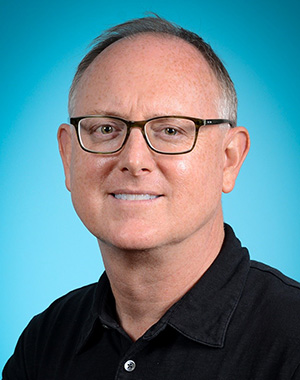 Mr. Neil Hoff is a civilian branch head supporting enterprise communications and networks with the U.S. Navy. He has a B.S. in Electrical Engineering from UCLA, M.S. in Telecommunications from Southern Methodist University, and M.B.A. from the Anderson School at UCLA. In addition to supporting the DARPA OPS-5G program, he is responsible for 5G laboratory investments supporting Naval 5G research.
Mr. Neil Hoff is a civilian branch head supporting enterprise communications and networks with the U.S. Navy. He has a B.S. in Electrical Engineering from UCLA, M.S. in Telecommunications from Southern Methodist University, and M.B.A. from the Anderson School at UCLA. In addition to supporting the DARPA OPS-5G program, he is responsible for 5G laboratory investments supporting Naval 5G research.
Heidi Buck, Director, Battlespace Exploitation of Mixed Reality (BEMR) Lab Naval Information Warfare Center Pacific (NIWC Pacific)
 Ms. Heidi Buck joined the Naval Information Warfare Center, Pacific (NIWC Pacific) in 2002 after receiving her Master’s Degree from the University of California, San Diego (UCSD) in Electrical Engineering with a focus in Signal and Image Processing. She spent 13 years of her career at NIWC Pacific working on computer vision systems to support the warfighter, focused primarily on automatic target recognition systems. In 2008 she received a Navy’s Top Scientist and Engineer Award for her work in these fields.
Ms. Heidi Buck joined the Naval Information Warfare Center, Pacific (NIWC Pacific) in 2002 after receiving her Master’s Degree from the University of California, San Diego (UCSD) in Electrical Engineering with a focus in Signal and Image Processing. She spent 13 years of her career at NIWC Pacific working on computer vision systems to support the warfighter, focused primarily on automatic target recognition systems. In 2008 she received a Navy’s Top Scientist and Engineer Award for her work in these fields.
In December 2014 Ms. Buck founded the Battlespace Exploitation of Mixed Reality (BEMR) Lab, a space for innovative thinkers to leverage low cost commercial sector technology in the mixed reality (virtual and augmented reality) space for collaboration between warfighter, researcher, government, industry and academia. The lab has received national attention, including visits from the Secretary of Defense, Congressmen, Fortune 500 CEOs, military leaders and numerous other VIPs. The lab handles visits and demonstrations to about 1000 people per year, including numerous STEM and outreach events. For her work with the BEMR Team she received two Secretary of the Navy Innovation Awards for her team’s work on warfighter concepts in the lab.
Panelists:
Lizy Paul, National Spectrum Consortium (NSC), Lockheed Martin {Confirmed}
 Lizy Paul is the Elected Chair of the National Spectrum Consortium. Lizy is also the Director of 5G.MIL™ Programs for Lockheed Martin Corporation. Prior to her current position with Lockheed Martin, she was the Director of Technical Strategy for the Defense Communications Solutions at Collins Aerospace, a Raytheon Company. Paul has a MSEE from Johns Hopkins University and an MBA from University of Iowa. She holds 16 patents in RF Communications technologies. She has held Engineering leadership and research positions at Motorola, Ericsson and Hughes Network Systems.
Lizy Paul is the Elected Chair of the National Spectrum Consortium. Lizy is also the Director of 5G.MIL™ Programs for Lockheed Martin Corporation. Prior to her current position with Lockheed Martin, she was the Director of Technical Strategy for the Defense Communications Solutions at Collins Aerospace, a Raytheon Company. Paul has a MSEE from Johns Hopkins University and an MBA from University of Iowa. She holds 16 patents in RF Communications technologies. She has held Engineering leadership and research positions at Motorola, Ericsson and Hughes Network Systems.
Matt Grob, XCom Labs {Confirmed}
Dr. Derek Peterson, CTO, Boingo Wireless {Confirmed}
 Derek Peterson, Ph.D., is chief technology officer at Boingo Wireless, a global leader in connectivity. At Boingo, he is responsible for the company’s technical vision and strategy. Under his leadership, Boingo is pioneering the adoption and deployment of the latest wireless network technologies including 5G, CBRS, Passpoint, edge computing, network virtualization and convergence. He is directly responsible for building and operating Boingo's core technologies and systems, including web applications, client software, networks, authentication, billing, advertising, IPTV, business intelligence and IT infrastructure.
Derek Peterson, Ph.D., is chief technology officer at Boingo Wireless, a global leader in connectivity. At Boingo, he is responsible for the company’s technical vision and strategy. Under his leadership, Boingo is pioneering the adoption and deployment of the latest wireless network technologies including 5G, CBRS, Passpoint, edge computing, network virtualization and convergence. He is directly responsible for building and operating Boingo's core technologies and systems, including web applications, client software, networks, authentication, billing, advertising, IPTV, business intelligence and IT infrastructure.
Holding deep telecommunications experience, Dr. Peterson’s career spans positions as a consultant, engineer, product manager and executive. Prior to joining Boingo in 2011, he served in strategic product roles at Oracle driving global launch campaigns for LTE adoption and billing software solutions.
Dr. Peterson is an OnGo Alliance and Wireless Broadband Alliance board member, and a founding member of the Wireless Infrastructure Association's Innovation & Technology Council of wireless industry leaders. He is a veteran of Operation Desert Shield/Storm and Operation Joint Endeavor, serving with the United States Air Force.
He holds a BS in Computer Science from the University of Maryland, an MA in Education and Technology from the American InterContinental University, and a Doctorate of Computer Science with a focus on Enterprise Information Systems from Colorado Technical University. In 2017, Los Angeles Business Journal named Dr. Peterson CTO of the Year. In 2019, FierceWireless named him a “Wireless Industry Executive to Watch.”
Caroline Y. Chan, Vice President, Network and Edge Group; General Manager, Network Business Incubator Division, Intel (Confirmed)
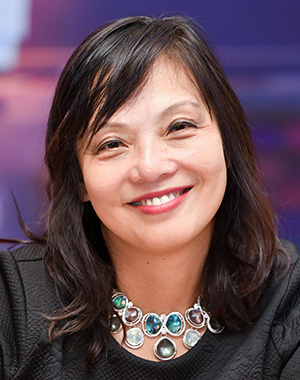 Caroline Y. Chan is vice president in the Network and Edge Group and general manager of the group’s Network Business Incubator Division at Intel Corporation. She is responsible for driving new services running across the network infrastructure, working closely with network service cloud service providers and enterprises. Chan and her team will lead pathfinding of advanced technology solutions that are enabled and accelerated by 5G capabilities such as AI, Machine Learning, Blockchain, Data Analytics, Immersive Media, Cloud gaming, and others.
Caroline Y. Chan is vice president in the Network and Edge Group and general manager of the group’s Network Business Incubator Division at Intel Corporation. She is responsible for driving new services running across the network infrastructure, working closely with network service cloud service providers and enterprises. Chan and her team will lead pathfinding of advanced technology solutions that are enabled and accelerated by 5G capabilities such as AI, Machine Learning, Blockchain, Data Analytics, Immersive Media, Cloud gaming, and others.
Chan was previously VP and GM of Intel 5G Infrastructure Division and had overall responsibility for Intel’s global network infrastructure strategy and solution development related to 5th-generation wireless technology. Chan and her team identified and developed use cases that incorporate the Internet of Things, innovation in wireless technologies and deployment models, such as mobile edge computing and alternative spectrums that will enable new service providers and enterprise networks.
Since joining Intel in 2009, Chan has worked closely with telecommunications vendors, operators and application developers to advance strategy and marketing in virtual RAN, mini Cloud-RAN and mobile edge computing technologies. Before leading the 5G infrastructure division, she spent six years as director of wireless technology and strategy. In that position, Chan oversaw server CPU extension into Intel’s wireless infrastructure business, a role that encompassed investment strategy, CPU adoption and modification, marketing, and business development.
Before joining Intel, Chan had a 15-year career at Nortel Networks Corp., culminating in her role as director of 4G wireless product management.
She serves as an independent director on EnerSys Inc. (NYSE: ENS) board. In addition, Chan serves on the board of the Telecom Infrastructure Project (TIP) and CBRS Alliance. She is also an advisory board member for Advisory Council for Rural Edge Solutions (ACRES) and 5G Open Innovation (5GOI) Lab. Her contributions in the area of virtualized wireless radio access networks earned Chan an Intel Achievement Award in 2016. Chan was elected to be among the top 25 movers and shakers in the telecom industry 2018 by Fierce Telecom and among the top 5G 100 most influential individuals charting the course for the next generation of global communications in 2020 by Light Reading.
Chan holds bachelor’s and master’s degrees in electrical engineering from the University of Texas at Austin and the University of Massachusetts Amherst, respectively.
Naveen Yanduru, Renesas USA, VP, RF Business Unit {Confirmed}
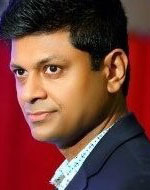
Dr. Naveen Yanduru is currently the Vice President and General Manager of the RF Business Unit at Renesas. Before Renesas, he has held various technical and management roles at Texas Instruments, Samsung, Psemi and Qualcomm. He has designed, led and managed teams in the design of various connectivity and cellular RF Front-Ends, Transceivers and SoCs. Naveen has 23 US patents, has over 25 IEEE publications and served as Distinguished Lecturer for IEEE-CAS. He has a PhD from the University of Texas at Dallas.
Talk Topic: Active Beamforming ICs for Satcom, Radar and 5G mmWave Applications
Beamforming ICs are the main constituents of Electronically Steered Antennas (ESAs). Thinner, lower weight and more beam-agile than traditional antennas, ESAs are revolutionizing communications by enabling higher data rates with lower latency in more places. The lower latency, made possible by rapid beam steering capabilities of ESAs, is the main driving force behind improving tele-working and propelling the future of self-driving cars, self-flying planes, remote surgery and life-like virtual collaboration environments.
Richard Russell, Global Head of Sales - Mobility Engine, Radisys {Confirmed}
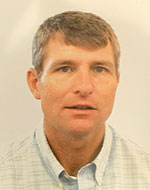 Richard, Global Head of Sales - Mobility Engine, at Radisys, partners with Fortune 100 companies and disruptive start-ups alike to deploy disaggregated 5G, CBRS, and ORAN solutions. He has over 25 years’ experience leading wireless technology teams in Europe, UK, and North America. Thanks to a career extending yoga practice, Richard is a three-time world ultimate frisbee champion (Team USA). He loves outdoor family-oriented activities such as: skiing, boating, tennis, and cheering for his alma mater, the Georgia Bulldogs.
Richard, Global Head of Sales - Mobility Engine, at Radisys, partners with Fortune 100 companies and disruptive start-ups alike to deploy disaggregated 5G, CBRS, and ORAN solutions. He has over 25 years’ experience leading wireless technology teams in Europe, UK, and North America. Thanks to a career extending yoga practice, Richard is a three-time world ultimate frisbee champion (Team USA). He loves outdoor family-oriented activities such as: skiing, boating, tennis, and cheering for his alma mater, the Georgia Bulldogs.
Description: This Panel will discuss latest status and challenges in 5G SA testbeds designed for military experiments with augmented reality and virtual reality—or AR and VR—applications, 5G technologies has the potential to improve employee training programs, change business communication mediums, and revolutionize production manufacturing




